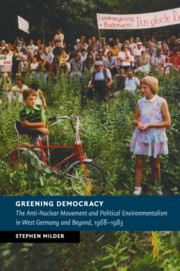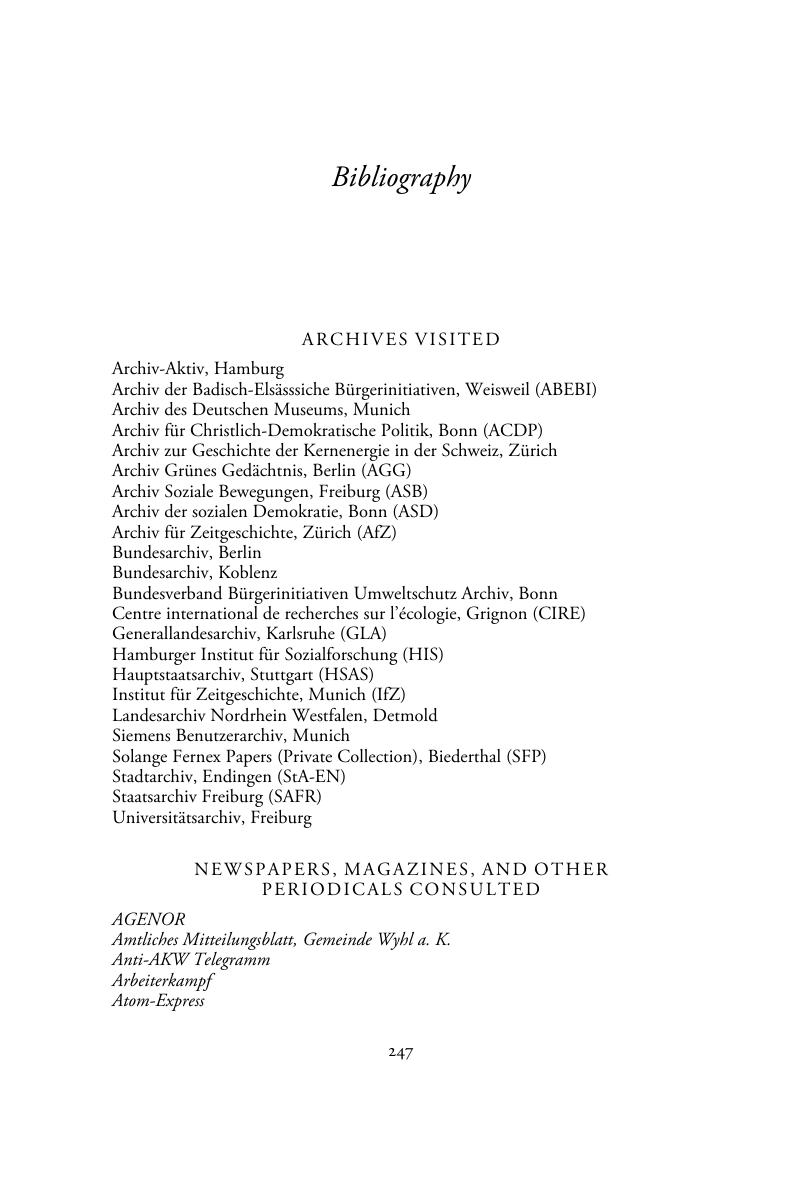 Greening Democracy
Greening Democracy Book contents
- Greening Democracy
- New Studies in European History
- Greening Democracy
- Copyright page
- Dedication
- Contents
- Illustrations
- Acknowledgments
- Note on Translations and Acronyms
- Introduction: Taking the Democratic Dimensions of Anti-Nuclear Activism
- Chapter 1 “Today the Fish, Tomorrow Us”: The Threatened Upper Rhine and the Grassroots Origins of West European Environmentalism
- Chapter 2 A Different Watch on the Rhine: How Anti-Nuclear Activists Imagined the Alemannic Community and United a Region in Resistance
- Chapter 3 Onto the Site and into Significance? The Wyhl Occupation in Its Contexts, from Strasbourg to Kaiseraugst and Constance to Kiel
- Chapter 4 “Wyhl and Then What…?”* Between Grassroots Activism and Mass Protest
- Chapter 5 Political Questions, Grassroots Answers: Shaping an Environmental Approach to Electoral Politics
- Chapter 6 Organizing a “Decisive Battle Against Nuclear Power Plants”: Europe and the Nationalization of Green Politics in West Germany
- Conclusion: Protesting Nuclear Energy, Greening Democracy
- Bibliography
- Index
- References
Bibliography
Published online by Cambridge University Press: 11 May 2017
- Greening Democracy
- New Studies in European History
- Greening Democracy
- Copyright page
- Dedication
- Contents
- Illustrations
- Acknowledgments
- Note on Translations and Acronyms
- Introduction: Taking the Democratic Dimensions of Anti-Nuclear Activism
- Chapter 1 “Today the Fish, Tomorrow Us”: The Threatened Upper Rhine and the Grassroots Origins of West European Environmentalism
- Chapter 2 A Different Watch on the Rhine: How Anti-Nuclear Activists Imagined the Alemannic Community and United a Region in Resistance
- Chapter 3 Onto the Site and into Significance? The Wyhl Occupation in Its Contexts, from Strasbourg to Kaiseraugst and Constance to Kiel
- Chapter 4 “Wyhl and Then What…?”* Between Grassroots Activism and Mass Protest
- Chapter 5 Political Questions, Grassroots Answers: Shaping an Environmental Approach to Electoral Politics
- Chapter 6 Organizing a “Decisive Battle Against Nuclear Power Plants”: Europe and the Nationalization of Green Politics in West Germany
- Conclusion: Protesting Nuclear Energy, Greening Democracy
- Bibliography
- Index
- References
Summary

- Type
- Chapter
- Information
- Greening DemocracyThe Anti-Nuclear Movement and Political Environmentalism in West Germany and Beyond, 1968–1983, pp. 247 - 267Publisher: Cambridge University PressPrint publication year: 2017


